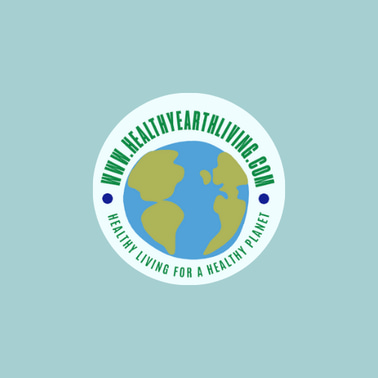How to Boost Mental Health Through Nature
Discover how spending time in nature can boost mental health, reduce stress, and improve focus. Learn simple ways to connect with the outdoors for a happier, healthier mind.
HOMEMINDBODY
Dr Bhavani Dhulipala
12/2/20249 min read
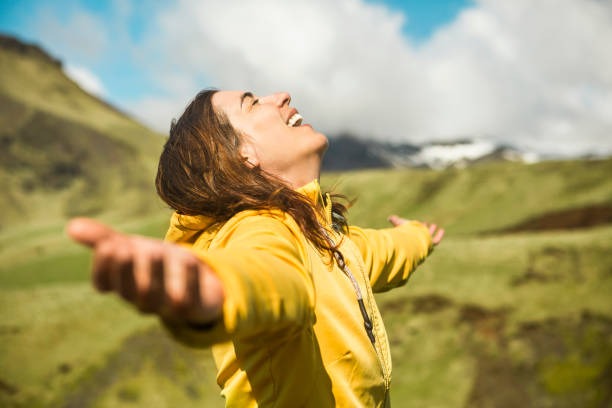

Key Points
Spending just 20 minutes in a natural environment lowers stress hormones and promotes relaxation.
Time outdoors improves cognitive function, enhancing clarity and problem-solving skills.
Incorporate nature into your routine with walks, gardening, or bringing plants into your home.


Why Nature Matters for Mental Well-Being
I just need some time out! I just need to get some air!
We all experience this common emotion when confronted with overwhelming circumstances. In meditation, for instance, we are often encouraged to visualize a beautiful waterfall or a serene garden to achieve a sense of calm. Nature encompasses the interaction between living and nonliving elements, including food, water, natural resources, and climate changes.
Humans tend to seek solace and peace in the lap of nature whenever they have to process something new or unpleasant. It is natural for humans to return to Mother Nature when things do not go their way, just as children do when they return to their mothers.
The increasing disconnect from nature in modern life
In the earlier days of evolution, we lived in forests, near water, for food and shelter. We slowly moved inward onto the land while keeping in touch with the water body. We started exploring different landscapes on Earth and found ways to bring water and food to us.
Nowadays, we have access to food and water in the blink of an eye… thanks to smartphones!! Going out into nature to fetch food was a way to be closer to nature, which we have lost in this setup.
Everything, from the food we eat to the air we breathe, has been adulterated and polluted to an alarming level. The busy lifestyle due to techie jobs has made it difficult for people to find time to go out and enjoy the clear sky and fresh air.
The science and practical ways nature benefits mental health.
Recent studies support an association between common types of nature experience and increased psychological well-being (1). The mechanism and exact neurochemical reactions facilitating this are not known, but many studies emphasize the importance of nature therapy and connection with nature to help us combat the loneliness humans are facing.
The Science of Nature and Mental Health
Mental health has become a major concern in the present world. Many factors contribute to this situation, but the major ones are reduced quality time with family, where we can speak our minds without any hindrances, and the ever-increasing working hours, which make it difficult to spend time in nature.
Key research findings:
Time in green spaces lowers cortisol levels and blood pressure.
Several studies have associated the beneficial effects of green space proximity with health-adverse outcomes. Due to the tremendous mental burden in the workplace, hypertension is the most common condition encountered by the general public. Studies have shown that regions with more street trees and nearby parks have a beneficial impact on hypertension(2). Green spaces can help reduce blood pressure by keeping the mind calm.
Also, contact with green space has been associated with a reduction in stress levels. These effects can be seen due to increased physical activity (like walking, jogging, and other activities), which, in turn, improves mood; increased social contact and sense of “belonging” within a community; and psychological restoration related to attention processes and reduction of stress and fatigue.
Higher levels of neighborhood green space in urban communities help reduce the perception of stress and increase the decline in cortisol (stress hormone) levels(3).
Nature exposure improves focus and reduces symptoms of depression and anxiety.
The COVID-19 pandemic and associated widespread socio-economic changes are leading to a mental health crisis globally. According to recent statistical data, anxiety and depression have increased prevalence during the COVID-19 pandemic. (4) It was estimated that almost one in five adults experienced some form of depression, with more than half of adults also reporting high levels of anxiety.
A recent study conducted has stated that nature walks can help reduce anxiety and depression to a significant level in comparison to pharmacological intervention. (5)
Emotional Benefits of Being in Nature
How nature fosters emotional well-being
Promotes mindfulness by grounding us in the present.
Nature can keep us closer to reality. Often, we get so entangled in our daily routine that we forget why we are doing all of it in the first place. Being closer to nature can help us think calmly and understand the deeper meaning of situations. Mindfulness is better than ‘mind-fullness’.
Enhances mood through exposure to sunlight (boosting serotonin)
Exposure to sunlight can help in increasing Vitamin D, which is a well-known fact(6). Apart from that, it also helps boost serotonin levels, the happy hormones in the body. Recent studies claim that the mood of a person suffering from psychiatric illness is affected by seasonal variations in the climate, with significant worsening in winter. (7).
Sunlight exposure can enhance serotonin release, as it is derived from the amino acid tryptophan, which needs blue light for conversion to serotonin. Spending time in the sun daily can help improve your mood.
Creates a sense of awe, leading to greater life satisfaction
In Eastern parts of the world, it was a common practice in the old days that after a certain age, people leave their family life and enter forests for penance to understand the deeper meaning of life. They live close to nature, eat the food available, and have a peaceful time. These places are known to be spiritual hubs. Being closer to the natural environment can give us closure and a sense of gratification that life need not be perfect to be beautiful, imperfections are a part of it.
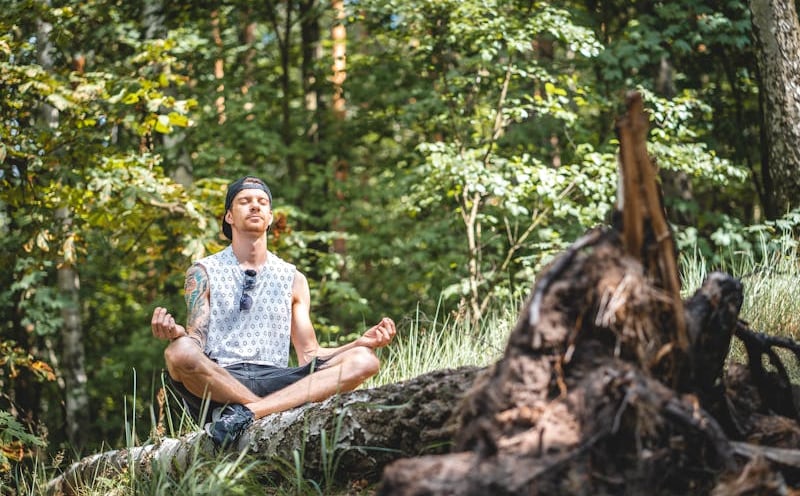

Cognitive and Physical Benefits of Nature
Cognitive benefits
Nature has the potential to relieve cognitive overload, reduce stress, and increase well-being all factors that improve learning. Nature exposure typically involves connecting with ‘green’ and ‘blue’ spaces, including parklands, forests, plants, the ocean, and other natural waterways such as rivers and lakes. Recent studies suggest that key cognitive processes related to attention and memory were enhanced following natural exposure. Nature exposure also helps in reducing mental and physical fatigue. (8).
Physical aspects
As discussed earlier, nature walks and regular exposure to the sun can help reduce anxiety and combat depression. They can also help increase vitamin D levels, which in turn help maintain proper bone health. Taking long walks or jogging in a park or nature helps manage Diabetes mellitus and Hypertension. Fresh air can be breathed in, and the functioning of the lungs is improved in such an atmosphere.
Nature’s Role in Combating Modern Stress
How urban living and technology contribute to stress
In today’s fast-paced world, people have many opportunities to connect with others and share their happiness. However, loneliness and depression are reaching alarming levels. Despite living in the same household, individuals often feel connected yet disconnected from one another. With each passing day, as they form new connections and progress towards urbanization, people are moving further away from nature.
The diminishing opportunities for nature exposure and immersion in technology have taken a toll on the mental health of the younger generation. Overexposure to manmade environments was believed to cause excessive nervous tension, over-anxiety, hasteful disposition, impatience, and irritability.
Nature as a counterbalance
Getting out of the concrete jungle and spending quality time in nature is an alternative that this generation must adopt.
Simple Ways to Incorporate Nature Into Your Life
Practical tips:
Regular time outs into nature: Take some time off every day in your busy schedules to take a walk in a green area.
Try to go out to buy groceries or essentials in person instead of ordering them online.
Whenever you are on break, try to relax outdoors.
Cultivate hobbies involving nature like gardening, bird watching, camping, and hiking.
Go on digital detox days where you completely disconnect from technology and try to reconnect with nature and your own body.
Plan your activities according to the climate, such as going hiking in winter, taking wildflower walks in spring, swimming in summer, or leaf-peeping in autumn.
Plan your vacations regularly to places known for their natural beauty, like rivers, beaches, and mountains.
Apart from these, schools and colleges have to include schoolyard greening, internal greening, and classroom views of nature for children to develop these habits at a young age. (9)
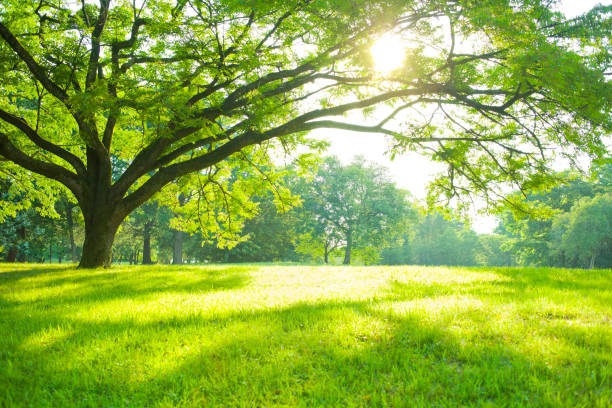





Nature Therapy and Forest Bathing
The concept of forest bathing (Shinrin-yoku) and its mental health benefit
In Japan, a forest bathing trip, called “Shinrinyoku” is practiced which is a short, leisurely visit to a forest. A forest bathing trip involves visiting a forest for relaxation and recreation while breathing in volatile substances, wood essential oils (called phytoncides), derived from trees.
It is regarded as being similar to natural aromatherapy. Studies show that habitual forest bathing reduces the levels of anxiety and depression and the essential oils used increase the immune response of the person. (10) Forest bathing has received particular attention because it is often free and more accessible than established health interventions.
Examples of nature-based therapies: ecotherapy, wilderness therapy.
Ecotherapy is a therapeutic practice that involves engaging with nature to improve mental health and well-being. It includes spending more quality time in nature in the form of hiking, gardening, forest bathing (shinrin-yoku), animal-assisted therapy, and other outdoor practices. It can be done individually or in a group with a trained therapist where healthy discussions about our problems and challenges are discussed. It helps in developing mindfulness and deeper understanding of self. (11)
Wilderness therapy is a kind of extended version of ecotherapy where people are taken for hiking or camping or other nature activities for longer periods and a trained counselor or therapist accompanies them. They can last from several weeks to several months depending on the person.
This therapy follows a holistic approach where the body, mind, and spirit of the person are taken into consideration, and therapeutic practices include physical, mental, and emotional stimulation. It is particularly helpful for adolescents with different behavioral problems, adults with emotional trauma (like PTSD and depression), and dysfunctional families or groups to attain peace and harmony. (12)


Overcoming Barriers to Spending Time in Nature
Challenges: lack of green spaces, busy lifestyles, weather constraints.
Urbanization can be attributed to the major barriers between people and nature in today’s world. Busy schedules and longer working hours, the increased number of sky-high buildings, and the increased usage of automobiles even for small commutes are major contributing factors.
The increased use of refrigerators, automobiles, and air conditioners, as well as the reduced number of trees and other pollutants, have also disturbed the climatic cycle.
Solutions:
1. Reconnecting with nature
2. Protecting nature
People have to work on reconnecting with nature and contributing their share to protecting it because if we do not wake up now, our future generations might not have anything left that is closer to nature.
Simple habits like walking, gardening, and cleaning the surroundings can help lower stress levels in unimaginable ways.
Reduce your use of automobiles and try to walk, run, or ride a bicycle to run daily errands. By doing this, you are reducing pollution and also staying healthy.
Engaging in group adventures or activities to improve stress-combating skills and finding motivation to work out regularly.
Increasing the use of green energy, such as solar panels for electricity and biogas for cooking, helps reduce pollution to some extent.
Instead of depending on air conditioners, you can try spending time outdoors whenever the climate is favorable.








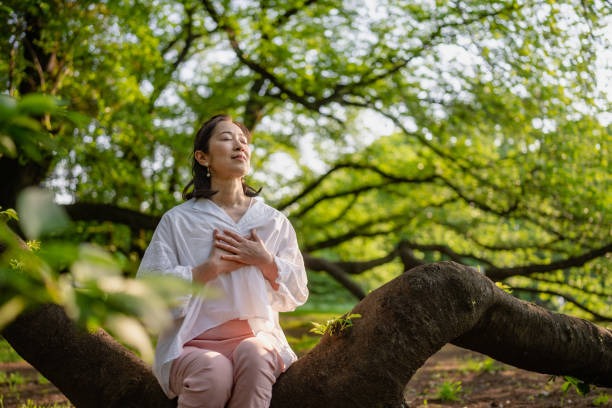



The Ripple Effect: How Nature Connection Benefits Communities
Broader impacts:
Community green spaces reduce crime and foster social bonds.
Community green spaces like parks can help improve interpersonal relations between community members. Regular meetings can promote healthy discussions about improving their surroundings, and innovative ideas can be shared to improve living standards.
Shared outdoor activities promote collective mental well-being.
Going on group adventures or outdoor activities can help reduce mental stress. We get to share our experiences and challenges with others and might sometimes meet people who are in similar situations. Letting out can sometimes be the best medicine we might need, and there are certain things that we cannot share with our own family. Such activities provide a safe space to let out our frustrations.
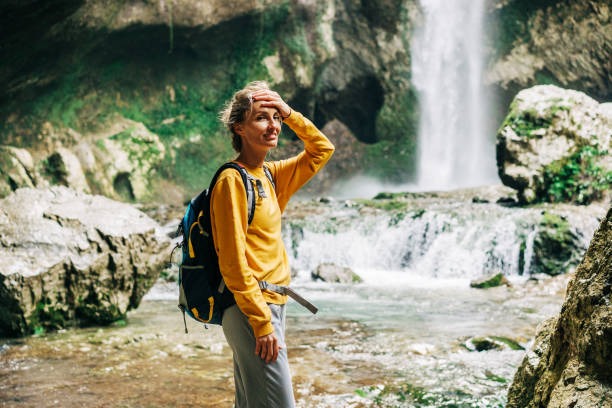

Final Thought: Reclaim Your Connection to Nature for a Healthier Mind
When in doubt, go back to the roots. Reconnecting with nature helps us forget certain things, and when we return, we can see things from a different perspective.
Engage in some outdoor activities close to nature and find out the difference yourself.
© 2025 Salo Content Writing LLC, all rights reserved
Join the Movement for a Healthier Planet! 🌿
Subscribe now and get your FREE Sustainable Living Checklist! Plus, enjoy weekly articles and delicious plant-based recipes straight to your inbox. Let’s make sustainable living simple and inspiring, one email at a time! 💚✨
